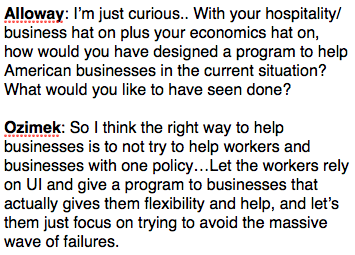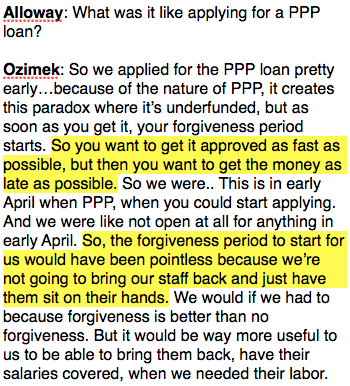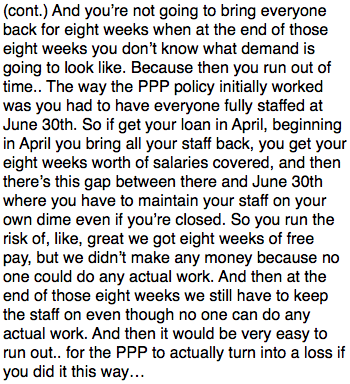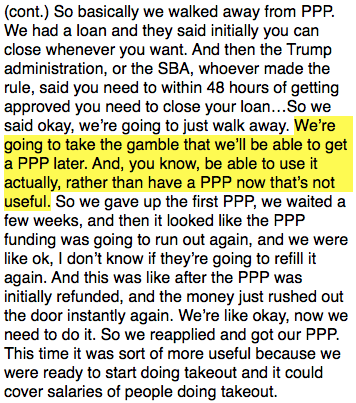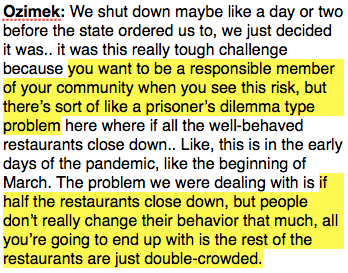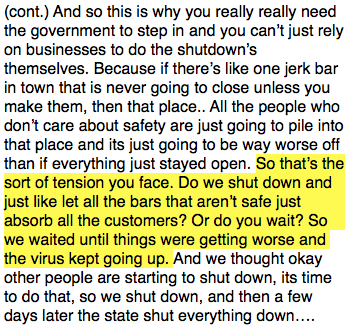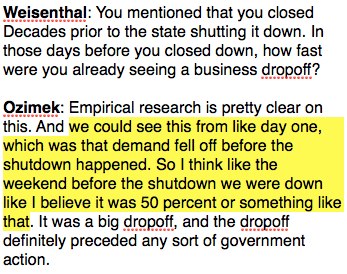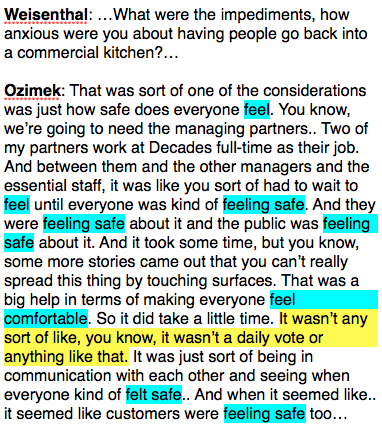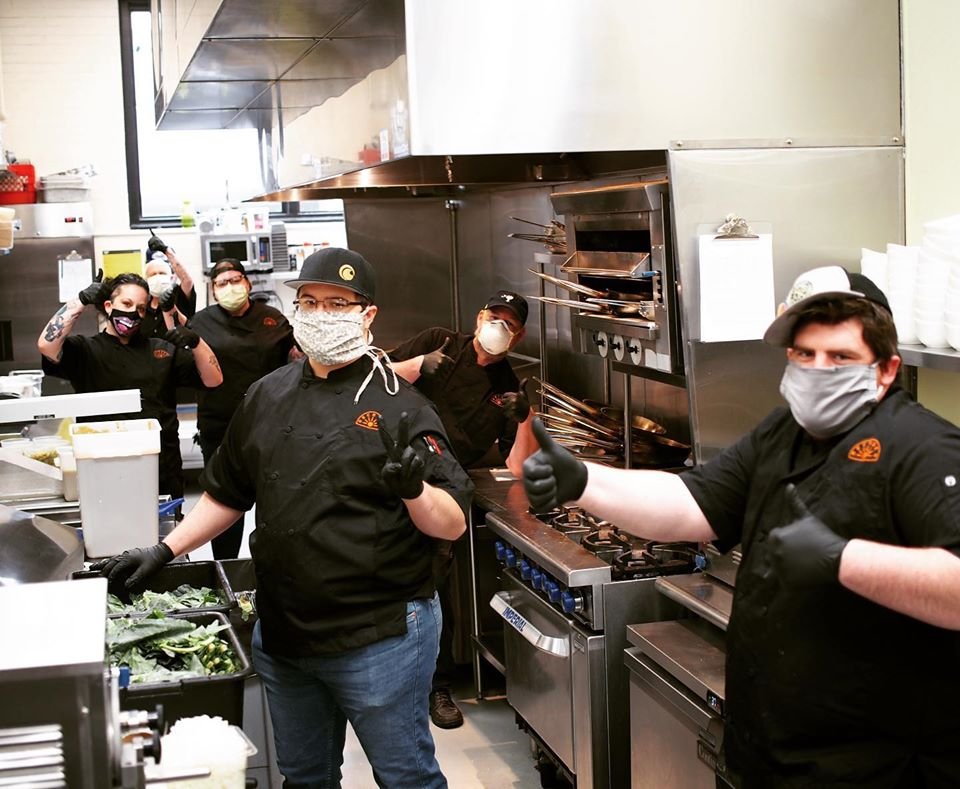This interview offers an instructive window onto how a sophisticated, well-informed small business owner sets priorities and navigates available opportunities during the COVID crisis - with implications for labor policy and public health going forward. https://twitter.com/TheStalwart/status/1295326990300585984
Policymakers often assume small business owners internalize the well-being of workers and the local community into business decisions. Under this view, its reasonable to expect small business would happily pass income to furloughed workers and make sacrifices for public health.
Ozimek, however, illustrates that there are perfectly reasonable business owners who want to focus specifically on core business issues - earning revenue, meeting debt obligations, avoiding failure. He is not interested in running a jobs program or a public health initiative.
The Paycheck Protection Program was described as a way to maintain productive employment relationships, and keep workers on payroll and off UI. But sensible small business owners like Ozimek prioritized PPP as a lifeline for their business, not a way to help furloughed workers.
Ozimek's business secured a first round PPP loan, which required quickly restoring workers to payroll. But the workers were furloughed, and Ozimek believed that accepting the loan also carried a theoretical risk the business may have to cover payroll the last 2-3 weeks in June.
He viewed paying furloughed workers as a potential burden, not a responsibility. Rather than taking the loan, Ozimek rejected it and took the "gamble that we'll be able to get a PPP later. And...be able to use it actually, rather than have a PPP now that's not useful."
In terms of public health, small business owners are given significant discretion in determining when and how to operate. But small business owners are not disinterested third parties who impartially weigh competing interests based on significant public health expertise.
At the beginning of the pandemic, Ozimek theorized that his business was serving public health interests by continuing to stay open, and therefore reducing crowding across all local restaurants. This was probably false, and just ended up putting his own employees at risk.
When deciding to reopen, Ozimek focused on whether managers and staff "felt safe." Its unclear how this process actually worked. Boss-worker power imbalances and the potential for retaliation both probably hinder many workers' willingness to provide a candid assessment.
(Its worth noting that while the virus may not spread through surfaces, it can spread when people spend long periods of time in enclosed spaces in close proximity, which is often the case in restaurant kitchens. Decades' kitchen is pictured below.)
https://www.facebook.com/decadeslancaster/photos/thank-you-for-all-your-orders-this-week-its-great-to-have-some-of-the-crew-back-/525815098085310/
https://www.facebook.com/decadeslancaster/photos/thank-you-for-all-your-orders-this-week-its-great-to-have-some-of-the-crew-back-/525815098085310/
The point is not that small business owners should be paying furloughed staff or taking voluntary public health measures.
The point is that policymakers should not assume small business owners are doing anything besides trying to survive and earn a return on their investment.
The point is that policymakers should not assume small business owners are doing anything besides trying to survive and earn a return on their investment.
We need policies that ensure workers are well-supported regardless of employment status. And we need strong public health regulations that do not assume small business owners have the interest or public health knowledge to adequately protect their staff, customers and community.
Policymakers should operate on the assumption that small business owners are looking out for themselves alone. They're not running an employment charity. They're not sacrificing income for public health. They're running for-profit businesses within the law, nothing more.

 Read on Twitter
Read on Twitter